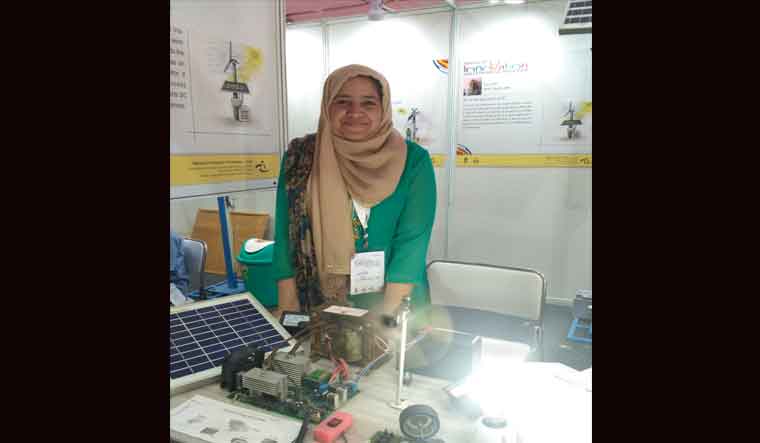Reshma Khanam, a sixth standard schoolgirl from Kamrup district in Assam, and Mohammed Rafiq Ahanger, a 43-year-old blacksmith from Kashmir, are special guests at the Rashtrapati Bhavan. Under a programme called Innovation Scholars In-Residence, Khanam, Ahanger, and eight others were selected to spend a week as the president's guests.
Khanam was invited for her idea to develop a device that would track Alzheimer's patients, ones who may have a tendency to wander away from home and get lost. The wearable device won her the 2017 Dr A.P.J. Abdul Kalam IGNITE Award. Ahanger too is a grassroots innovator, one who has tinkered around in his workshop and developed multi-purpose devices like three-in-one axe-hammers and chisels. Also to his credit are ergonomic spades, automatic sieves, and safety jackets for walnut harvesting.
“This time, we have ensured that grassroots innovators are given focus. However, the 10 innovators-in-residence include people from different specialisations, ages and qualifications. There are engineering students as well,'' said Sanjay Kothari, secretary to the president. “Rashtrapati Bhavan will act as a mediator in facilitating the interaction of these innovators with representatives from the industry.”
President Ram Nath Kovind, who inaugurated the week-long Festival of Innovation and Entrepreneurship, stressed on the need to create an ecosystem where innovations could be converted to enterprises. The festival, an annual event, commenced four years ago under Pranab Mukherjee.
The festival showcases a lot of interesting innovations. The government's Swachch Bharat mission is a recurring motif. For instance, a group of students from National Institute of Technology, Kolkata, have designed the prototype of a biodegradable sanitary napkin. There is S. Sethu Prasad, a schoolboy from Dindigul, Tamil Nadu, who designed smart speedbreakers that would automatically block cars entering a road from the wrong side, especially on one-way streets. Ayda Arif, 16, from Budgam, Kashmir, has designed a wind-solar hybrid inverter. These are all prototypes, which, with the right funding and direction, could become marketable products. Prasad wants to become a physicist, and Arif dreams of joining the foreign services.
There are also highly developed innovations, in search of better marketing opportunities. One such is a range of eco-friendly clay kitchenware, including a pressure cooker, developed by Mitticool Clay Creation, Gujarat. Another is Anandi Enterprises, which specialises in recycled yarn. One of its yarns, which comprises 60 per cent recycled cotton and 40 per cent recycled PET (used in use and throw bottles), is already being used by Levi's for making a range of shirts. It has developed another flannel-like fabric from reused denims. And apart from the now quite common banana fibre cloth (which is positioned for comparison with linen) the company is also developing yarn from areca nut fibre.
The innovation festival is also a place to meet humble farmers, who have, with minimum technology, been able to create good crop lines with cross-fertilisation. For instance, there is Tom C. Antony, who has developed an improved variety of nutmeg and mace.
“The president has made it very clear that it was not enough to just extend invitations for the festival. He says that from next year, he wanted a report card on the progress made after the event,'' said Kothari.
The festival opens to the public on March 20, and will continue till March 23. Entry is through Gate 35 of Rashtrapati Bhavan.


